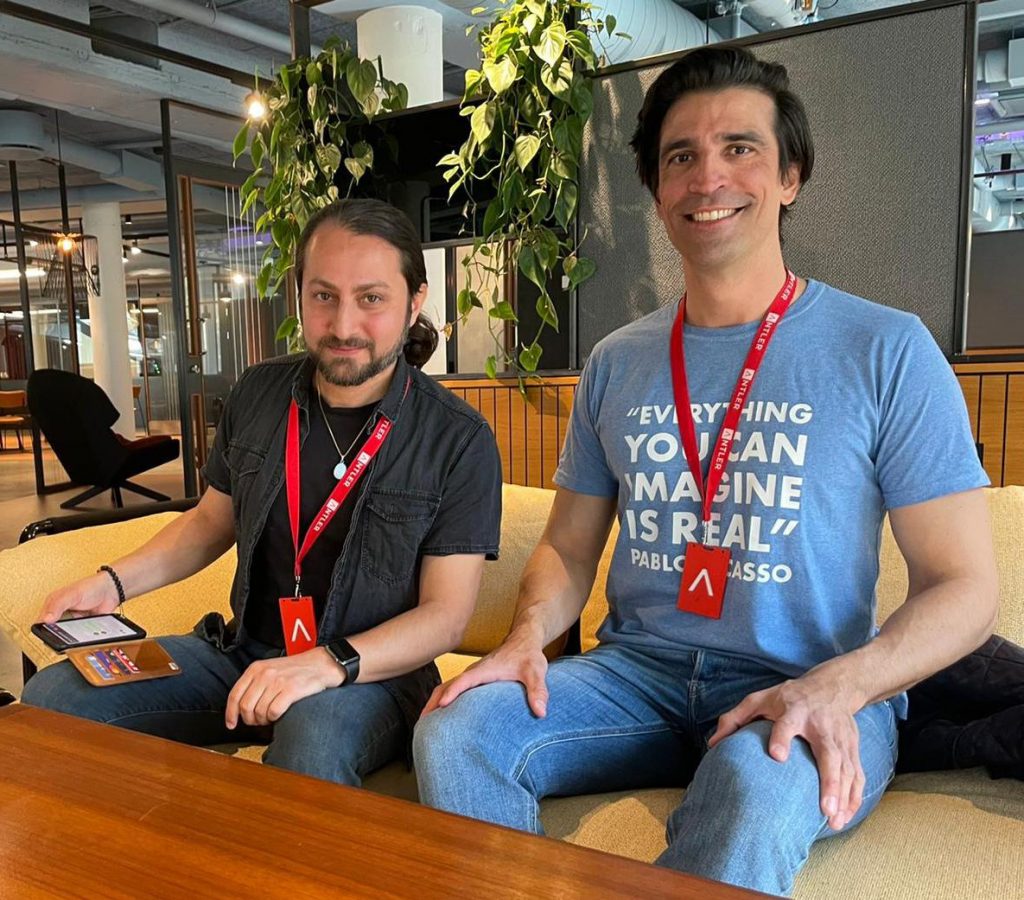Our founders met through the Antler programme in Oslo, a startup builder they joined with different backgrounds but an aligned purpose.
Augusto was born in Brazil, the son of two agriculture engineers and from a family of cattle farmers on his father’s side. He studied Industrial Engineering and spent fifteen years working for a management and technology consulting firm in Brazil, the United Kingdom, and the Nordics, serving clients in the natural resources industries. He joined the Antler programme with a deep desire to “see innovation from the inside” after working with his clients on the subject of innovation when he realized how uniquely positioned startups are to innovate and tackle the world’s biggest problems.
Nima came from an analytical background with a decade of work in data science and machine learning after his Ph.D. studies. He brought earlier learning from founding businesses in Iran and Norway, joining startups in the Nordics and Silicon Valley from their inceptions, or as an early hire, while building competence in the public and private sectors through consulting.
In 2019 Nima came across the story of how Sebastião Salgado, the renowned Brazilian photographer, and his wife planted 2.7 million trees in 20 years to restore a destroyed tropical forest. He was so inspired that he quit his job to find a co-founder and embark on a similar journey, but with the use of technology to scale. It took him three more years of search and travel until he ended up at Antler, where he met Augusto – another Brazilian who shared his keen interest in the power and value of tropical forests and biodiversity. In their journey to “find a co-founder and fall in love with a problem,” they created a strong bond once they realized that the complementarity of their skill sets would enable them to fulfill the deep-rooted ambition of making an impact on the compounding problem of global forest coverage and biodiversity loss while acting on the problem of global climate change. They ended up developing the concept of Skoog: using a wide array of technologies to harness the power of carbon markets and thereby conserve and restore tropical forests and improve agricultural practices.
They were chosen from the top 3% of the applicants in the competitive programme and further, by reaching product-market-fit, and early traction, managed to secure the VC funding.
By combining technology and the economic incentives from carbon markets, we can help scale the existing knowledge about preservation and sustainable land use and offer alternatives that can push back deforestation trends and bring about a systemic change centered around the bioeconomy.
A Call for Action
Starting with Brazil in mind, we identified that a lot of the deforestation happening is actually within the legal framework in private properties, which account for as much as half of the Brazilian continental-sized territory. Owners have an obligation to protect a certain share of the native vegetation, which varies according to the biome where their properties are located (for example, 85% of the native vegetation within private properties in the Amazon needs to be preserved). This leaves an area of approximately 70 million hectares (roughly 2x the size of Germany) covered by native vegetation unprotected and hence exposed to the advancing agriculture frontier of agri-commodities.
First-hand insight into the Brazilian land rights, colonization history, and economic reality gives Skoog a deep empathy to recognize the need to provide an alternative to deforestation for commodity-based agriculture. So we started contacting landowners starting the process of deforesting their private properties to plant soy or clear land for pasture, and they were willing to understand the market.
This unique insight, combined with our background in identifying and implementing digital solutions to streamline operations of industries such as solar and wind energy, enabled us to look at this problem in a holistic and integrated way. With the skills, the insights, and a strong desire to make a change, the co-founders felt something beyond a strong sense of purpose: a real sense of accountability.
Forests have much more value standing than when they are cleared to produce basic agricultural commodities, but this value is not yet understood or articulated at a necessary scale. We believe in forests’ potential to regulate climate, to support part of our current lifestyle by capturing greenhouse gases, and in the untapped potential of biodiversity to drive a new economy that knows natural resources better and explores them more sustainably.
We are Skoog, and we exist to reveal the value of standing forests.

